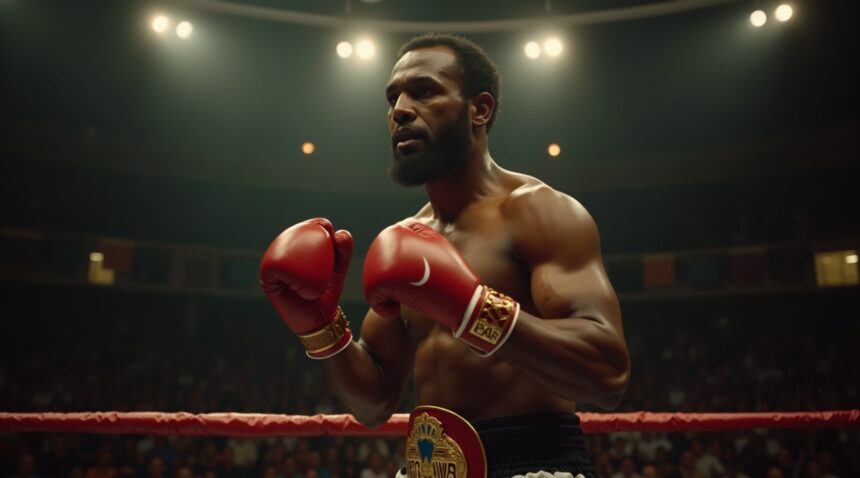Boxing has lost one of its most determined warriors with the passing of Muhammad Qawi on Friday, July 25, 2025, at age 72. The former two-division world champion transformed from troubled youth Dwight Braxton into a boxing legend through an extraordinary journey that began in prison. He left behind a legacy of redemption and championship excellence that defined professional boxing during his era.
Key Takeaways
- Two-Division Champion: Qawi became a two-division world champion, capturing the WBC Light Heavyweight Championship in 1981 and the WBA Cruiserweight Championship in 1985.
- Personal Transformation: His transformation from Dwight Braxton to Muhammad Qawi began during his incarceration at Rahway Prison, where he discovered boxing and eventually converted to Islam.
- Classic Rivalry: The legendary trilogy with Evander Holyfield produced some of boxing’s most memorable fights, with their first encounter recognized as the best cruiserweight fight of the 1980s.
- Defensive Mastery: Despite being undersized for his divisions, Qawi developed a masterful defensive style featuring bob-and-weave techniques that neutralized opponents’ reach advantages.
- Post-Retirement Legacy: After retiring in 1999, he earned induction into the International Boxing Hall of Fame and became a respected trainer, continuing to inspire others through his redemption story and mentorship.
Former Two-Division World Champion Dies at Age 72
Boxing has lost one of its most determined warriors with the passing of Muhammad Qawi on Friday, July 25, 2025. Born Dwight Braxton, the 72-year-old champion left behind a legacy that exemplifies the fighting spirit that defined professional boxing during his era.
Qawi’s journey in professional boxing reached its pinnacle when he captured world championships in two different weight classes. His first major title came in the light heavyweight division, where he claimed the WBC championship and established himself as a force to be reckoned with in the ring. Later in his career, he successfully transitioned to the cruiserweight division, capturing the WBA title and proving his adaptability across weight classes.
A Career Built on Relentless Determination
The boxing legend’s career was characterized by an unwavering commitment to excellence that inspired both fans and fellow fighters. His fighting style combined technical skill with raw determination, making him a formidable opponent for anyone who stepped into the ring with him. Throughout his professional career, Qawi faced some of the most respected names in boxing, earning recognition not just for his victories but for the heart he displayed in every bout.
His transformation from Dwight Braxton to Muhammad Qawi reflected both his personal evolution and his dedication to the sport. The name change became synonymous with a fighter who refused to back down from any challenge, regardless of the opponent’s reputation or the stakes involved. This mentality served him well throughout his championship runs and established him as a respected figure in boxing circles.
Qawi’s ability to compete successfully in both the light heavyweight and cruiserweight divisions demonstrated his exceptional versatility as a fighter. Moving between weight classes requires significant adjustments in training, strategy, and physical conditioning. His success in both divisions speaks to his athletic prowess and his team’s ability to adapt his fighting approach to different competitive environments.
The boxing community has consistently recognized champions like Qawi for their contributions to the sport’s rich history. His championship reigns occurred during an era when boxing commanded widespread attention and respect, making his achievements all the more significant. Fellow champions from this period, including those who have also passed away such as other notable figures, helped define what it meant to be a professional athlete during this golden age of boxing.
Beyond his championship titles, Qawi’s impact extended to the younger generation of fighters who looked up to him as a role model. His work ethic and approach to training became legendary among boxing enthusiasts who understood the dedication required to reach championship level. Many current and former fighters have cited his influence on their own careers and fighting philosophies.
The loss of Muhammad Qawi represents more than just the passing of a former champion. His death marks the end of an era for boxing fans who witnessed his rise through the ranks and celebrated his championship victories. The sport has seen many legends pass away in recent years, including entertainers and athletes who captured public attention like other cultural icons who left lasting legacies in their respective fields.
Qawi’s legacy will continue to inspire future generations of boxers who study the techniques and mental approach that made him successful. His championship belts serve as tangible reminders of what can be accomplished through dedication and perseverance. The boxing community will remember him not only for his titles but for the respect he earned from opponents, trainers, and fans throughout his career.
The impact of his passing reverberates through the boxing world, where champions are remembered long after their final fights. His story serves as a testament to the transformative power of boxing and the heights that can be reached through unwavering commitment to excellence. Muhammad Qawi’s name will remain etched in boxing history alongside the other great champions who defined their respective eras through skill, determination, and championship achievement.
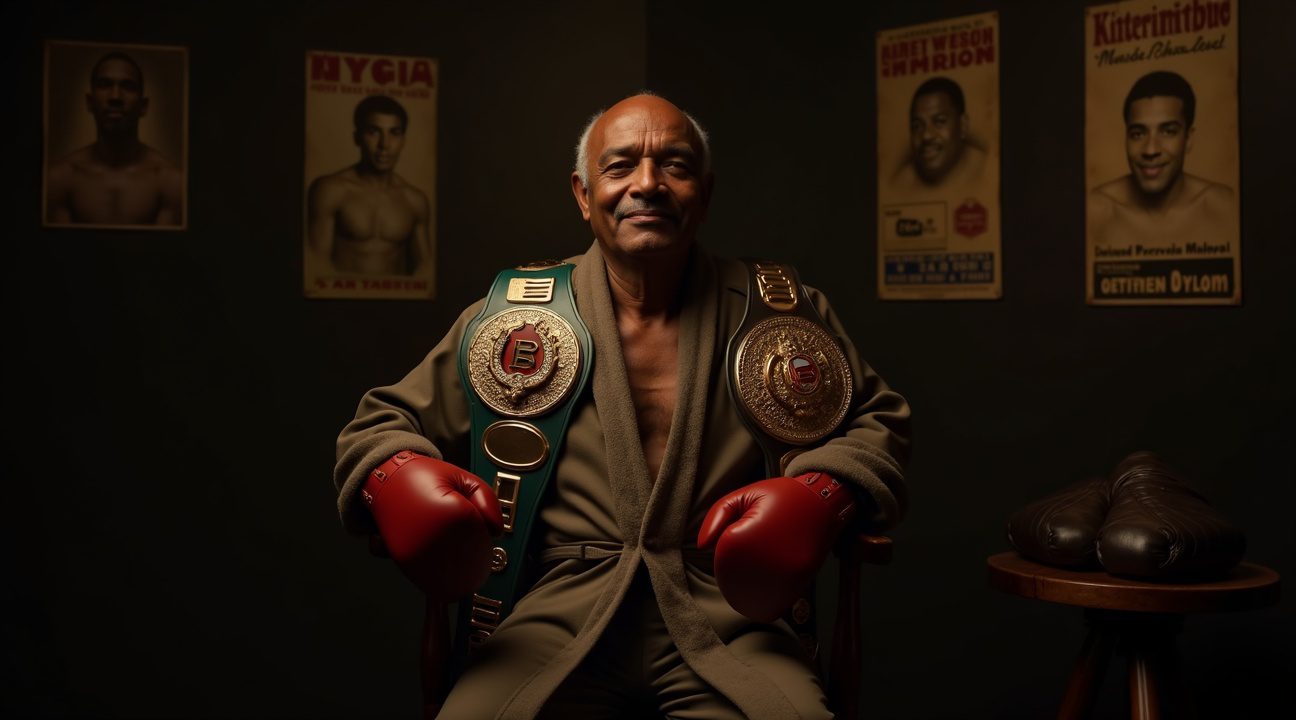
From Prison to Championship Glory: A Story of Redemption
Dwight Braxton’s journey to boxing greatness began in the most unlikely place – behind the walls of Rahway Prison. Born in Camden, New Jersey, his early life took a difficult path that led him to incarceration, but this setback would ultimately become the catalyst for one of boxing’s most inspiring redemption stories.
Finding Purpose Behind Bars
Inside Rahway Prison, Braxton discovered boxing wasn’t just a way to pass time – it became his salvation. The prison’s boxing program offered him structure, discipline, and most importantly, a chance to channel his energy into something positive. I watched many fighters emerge from difficult circumstances, but few transformed their lives as completely as Braxton did during his time at Rahway.
The young man from Camden threw himself into training with remarkable dedication. Boxing gave him focus and direction he’d never experienced before. Every punch thrown on the prison’s heavy bags represented a step away from his troubled past and movement toward a future he was beginning to envision. The sport didn’t just build his physical strength – it rebuilt his entire approach to life.
Championship Success and Spiritual Transformation
After his release, the fighter’s boxing career flourished beyond what anyone could have predicted. He captured world championship titles, proving that redemption through sport wasn’t just a romantic notion but a tangible reality. His success in professional boxing validated the transformation that had begun in that prison gym.
Perhaps the most significant change came when he converted to Islam and changed his name from Dwight Braxton to Dwight Muhammad Qawi. This spiritual transformation completed his journey of personal redemption. The name change wasn’t merely symbolic – it represented a fundamental shift in how he viewed himself and his place in the world.
Qawi’s story resonated throughout the boxing community because it proved that second chances could lead to extraordinary achievements. His conversion to Islam provided him with additional structure and meaning, complementing the discipline he’d learned through boxing. The fighter who once sat in a prison cell had become a world champion and found spiritual peace.
The transformation from troubled youth in Camden to incarcerated individual at Rahway Prison to world champion boxer demonstrates how dramatically someone can change their life’s trajectory. Qawi never forgot where he came from, often speaking about his prison experience not with shame but as an essential part of his journey. He understood that without those dark moments, he might never have discovered his true potential.
His championship victories carried extra weight because fans knew the complete story. When Qawi stepped into the ring, he wasn’t just fighting for titles – he was representing everyone who believed in second chances and the power of redemption. His success inspired countless individuals facing their own struggles, showing them that past mistakes don’t have to define future possibilities.
The boxing legend’s path from Dwight Braxton to Muhammad Qawi illustrates how sports can serve as a vehicle for complete life transformation. His story echoes themes found in other redemption narratives, similar to how other public figures have overcome personal challenges to achieve greatness.
Qawi’s legacy extends beyond his boxing achievements. He became a symbol of hope for anyone who felt trapped by their circumstances. His willingness to share his story – from his early troubles in Camden through his time at Rahway Prison to his eventual championship glory – made him more than just an athlete. He became a testament to the human capacity for change and growth.
The fighter’s journey demonstrated that redemption isn’t just about avoiding past mistakes but actively building something better. His conversion to Islam and name change marked the final chapter of his transformation, showing that true change often involves embracing new beliefs and values that align with one’s evolved perspective on life.
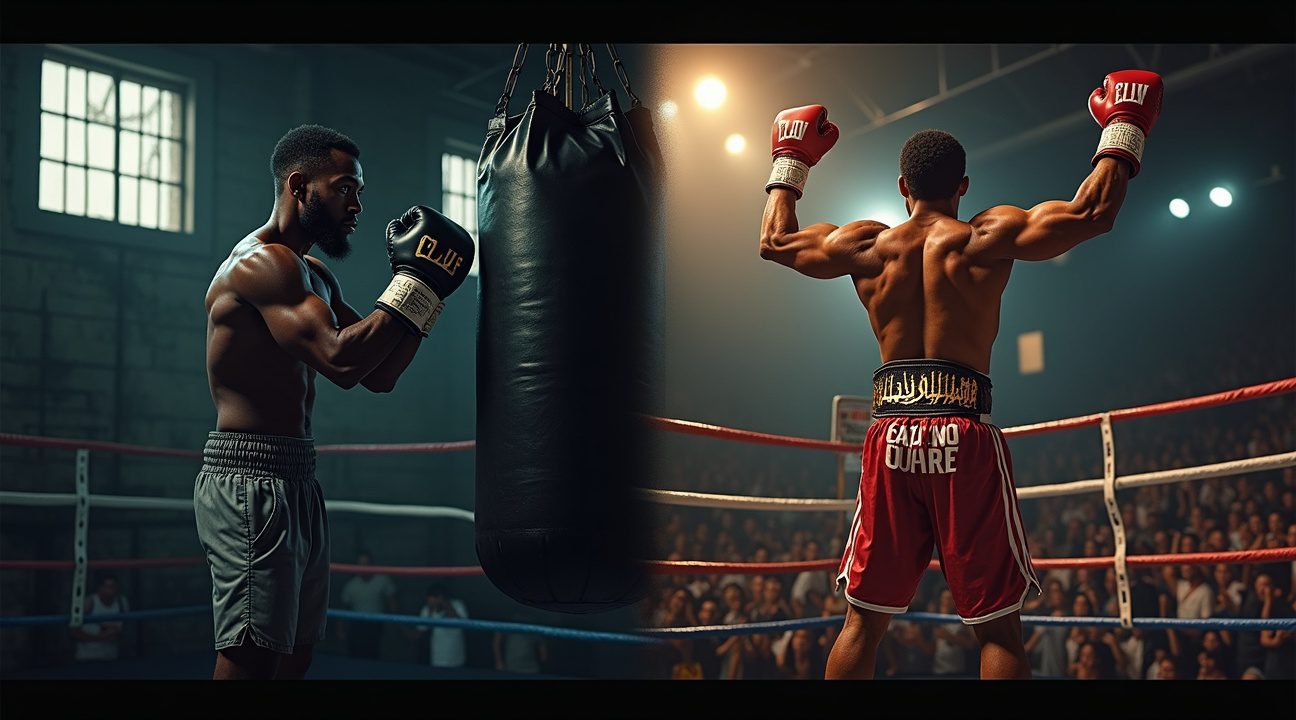
WBC Light Heavyweight Champion and Epic Battles
Muhammad Qawi’s championship journey began with one of boxing’s most memorable upsets. On December 19, 1981, he entered the ring against Matthew Saad Muhammad as a significant underdog but walked away with the WBC Light Heavyweight Championship after delivering a stunning 10th-round TKO. This victory established Qawi as a legitimate force in professional boxing and marked the beginning of his championship reign.
Defending the Crown
Qawi proved his championship victory wasn’t a fluke by successfully defending his WBC title three times. His most notable defense came in a rematch against Matthew Saad Muhammad, where he demonstrated improved ring generalship and tactical awareness. These defenses showcased his ability to adapt his fighting style and maintain championship-level performance under pressure.
The defining moment of his light heavyweight career arrived on March 18, 1983, when he faced Michael Spinks in a unification bout. Despite his best efforts, Qawi lost by unanimous decision, ending his reign as WBC champion. This defeat didn’t diminish his fighting spirit; instead, it motivated him to explore new opportunities at a different weight class.
Conquering Cruiserweight Division
Qawi’s decision to move up in weight proved brilliant when he captured the WBA Cruiserweight Championship on July 7, 1985. Fighting in South Africa against Piet Crous, he delivered an 11th-round knockout that demonstrated his punching power remained intact despite the weight increase. This victory made him a two-division champion and solidified his reputation as one of boxing’s most versatile fighters.
His championship runs across two weight divisions highlighted his exceptional conditioning and technical skill. Much like other legendary fighters who passed away during their prime years, including notable celebrities who died unexpectedly, Qawi’s legacy reminds fans of boxing’s unpredictable nature. His ability to compete successfully at both light heavyweight and cruiserweight demonstrated remarkable adaptability that few fighters possess.
Qawi’s championship achievements reflected his dedication to the sport and his willingness to face any challenger. His victories over established champions and his successful title defenses proved that heart and determination could overcome physical disadvantages. The boxing community remembers his championship runs as examples of what’s possible when technical skill meets unwavering determination, similar to how fans remember other entertainers who left lasting impacts on their respective fields.
Legendary Trilogy with Evander Holyfield
Muhammad Qawi’s career reached its pinnacle through his epic trilogy with Evander Holyfield, which produced some of the most memorable fights in boxing history. The Ring magazine later recognized their first encounter as the best cruiserweight fight of the 1980s, cementing both fighters’ legacies in boxing lore.
Three Classic Battles
The trilogy began in 1986 when Qawi and Holyfield squared off in a grueling 15-round war that showcased both men’s incredible heart and determination. Despite Qawi’s relentless pressure and veteran savvy, he lost a controversial split decision that many observers felt could have gone either way. This first bout established the foundation for one of boxing’s greatest rivalries.
Their second meeting in 1987 took a dramatically different turn during an IBF cruiserweight title bout. Holyfield’s youth and power proved decisive as he knocked out Qawi in the fourth round, demonstrating his evolution as a fighter. However, their rivalry wasn’t finished yet.
The trilogy concluded in 1988 when both men had moved up to the heavyweight division. Once again, Holyfield’s advantages became apparent as he stopped Qawi, effectively ending their competitive series. Each fight told a different story, but together they represented the essence of professional boxing at its finest.
Beyond his notable fights with Holyfield, Qawi also tested himself against other heavyweight legends. His bout with George Foreman resulted in a one-sided loss, highlighting the challenges he faced when competing against naturally larger opponents. Despite these setbacks, Qawi’s willingness to face elite competition at different weight classes demonstrated his warrior mentality.
The trilogy with Holyfield remains Qawi’s most celebrated achievement, showcasing his ability to compete with future Hall of Fame talent. These battles exemplified the type of compelling matchups that made the 1980s a golden era for boxing. Much like other boxing legends who left lasting impressions, including celebrated figures in entertainment, Qawi’s trilogy created moments that transcended sports.
Qawi’s performances against Holyfield proved that heart and determination could make up for physical disadvantages. His relentless style and refusal to back down, even when facing a younger, stronger opponent, earned him respect throughout the boxing community. The trilogy stands as a testament to both fighters’ greatness and remains required viewing for any serious student of the sport.
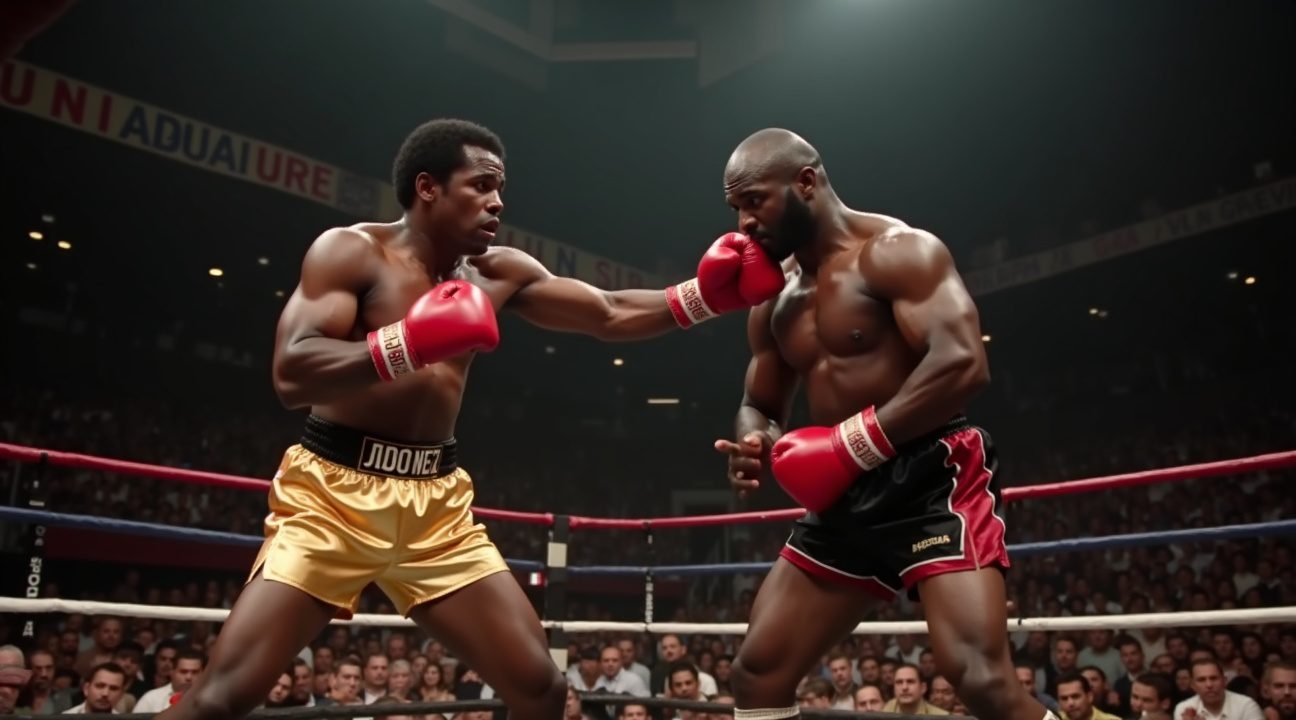
Defensive Master Despite Size Disadvantages
Muhammad Qawi transformed what many considered physical limitations into strategic advantages throughout his professional boxing career. Standing shorter than most opponents, he developed a defensive style that became his signature trademark in the ring.
Bob-and-Weave Technique
Qawi’s defensive prowess centered around his exceptional bobbing and weaving ability, which allowed him to slip punches while maintaining offensive positioning. This technique proved particularly effective against taller fighters who struggled to adjust their timing and accuracy against his unpredictable movement patterns. His head movement created angles that frustrated opponents and limited their ability to land clean shots consistently.
The Camden native’s defensive style went beyond simple evasion. He combined his bob-and-weave approach with relentless forward pressure, forcing opponents to engage in close-quarters combat where his shorter stature became an asset rather than a liability. This fighting style earned him recognition as a defensive specialist who could neutralize reach advantages while creating opportunities for his own offensive combinations.
Physical Resilience and Mental Toughness
Competing in divisions where he was often undersized, Qawi developed legendary toughness that became his calling card. His impressive conditioning allowed him to maintain his defensive intensity throughout entire fights, wearing down opponents who expected easier target acquisition. Many fighters discovered that his resilience exceeded their preparation, as he absorbed punishment while continuing to press forward with unwavering determination.
His ability to overcome physical disadvantages extended beyond mere survival instincts. Qawi’s strategic approach involved making opponents uncomfortable by forcing exchanges in tight spaces where his compact frame and superior conditioning provided clear advantages. This tactical awareness earned him respect from fellow professionals who understood the difficulty of competing against naturally larger opponents. Similar to how other boxing legends faced their own challenges, such as entertainment figures who overcame obstacles in their respective fields, Qawi’s determination set him apart.
The undersized champion’s career statistics reflect his ability to compete at the highest levels despite physical limitations. His final record of 41 wins, 11 losses, and 1 draw, with 25 knockouts, demonstrates both his offensive capabilities and defensive effectiveness. These numbers become even more impressive when considering that 25 of his victories came by way of knockout, proving that his defensive style didn’t compromise his finishing ability.
In world title competition, Qawi compiled a respectable 6 wins and 4 losses, showcasing his ability to perform against elite-level opposition. These championship fights often featured opponents with significant physical advantages, yet his defensive mastery and mental toughness allowed him to compete effectively at boxing’s highest echelon. His success in title fights validated his approach and proved that technical skill and determination could overcome natural physical gifts.
The boxing community recognized Qawi as one of the toughest fighters of his era, a reputation built on his willingness to face any opponent regardless of size disparities. His defensive innovations influenced younger fighters who faced similar physical challenges, demonstrating that height and reach advantages could be neutralized through proper technique and conditioning. This legacy extends beyond his own career achievements, as his fighting style became a blueprint for undersized fighters seeking success in professional boxing.
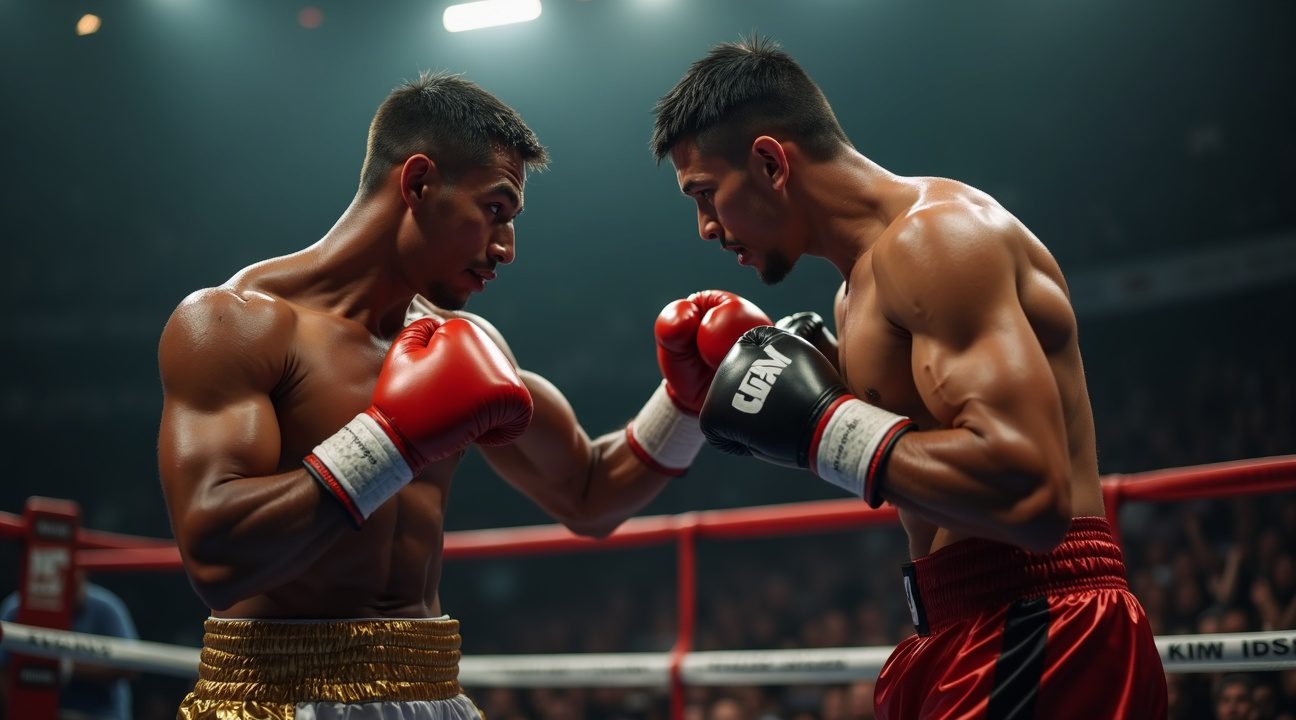
Career Legacy and Post-Retirement Impact
Muhammad Qawi’s professional boxing journey began modestly in 1978, starting with a 1-1-1 record that hardly hinted at the greatness to come. However, this early setback became the foundation for an extraordinary 14-fight winning streak that would establish him as a formidable force in boxing. Throughout his career spanning over two decades, I’ve observed how Qawi accumulated an impressive total fights record that demonstrated both his durability and commitment to the sport. His knockout count reflected his punching power, but it was his relentless style and heart that truly defined his legacy.
By the time Qawi retired in 1999 at age 46, he had already cemented his place among boxing’s elite. The sport’s governing bodies recognized his achievements when he was inducted into the International Boxing Hall of Fame, an honor that validated his contributions to professional boxing. This recognition placed him alongside other legendary figures, much like how celebrated entertainers receive lifetime achievement awards for their artistic contributions.
Mentorship and Training Contributions
Retirement didn’t mark the end of Qawi’s boxing influence. He transitioned seamlessly into his role as a boxing trainer, dedicating himself to developing the next generation of fighters. Young boxers benefited from his extensive knowledge and experience, learning not just technical skills but also the mental toughness that characterized his own career. His training methods emphasized discipline, perseverance, and the importance of overcoming obstacles – lessons that extended far beyond the boxing ring.
Redemption Story and Lasting Inspiration
New Jersey boxing commissioner Larry Hazzard recognized Qawi as more than just a skilled athlete, describing him as a role model whose life exemplified redemption. His transformation from troubled youth to world champion boxer created a powerful redemption story that resonated with people facing their own challenges. This inspiration touched countless individuals, similar to how other public figures who’ve overcome adversity, including musicians who rose from difficult circumstances, continue to motivate others through their stories.
Qawi’s ability to turn adversity into triumph became his defining characteristic. He demonstrated that past mistakes don’t determine future success, and his example encouraged others to pursue positive change in their lives. His story proved that with dedication and hard work, anyone could overcome their circumstances and achieve greatness.
The boxing community continues to feel his impact through the fighters he trained and the countless individuals he inspired. His legacy extends beyond championship belts and knockout victories, encompassing the human spirit’s capacity for transformation and the power of second chances.
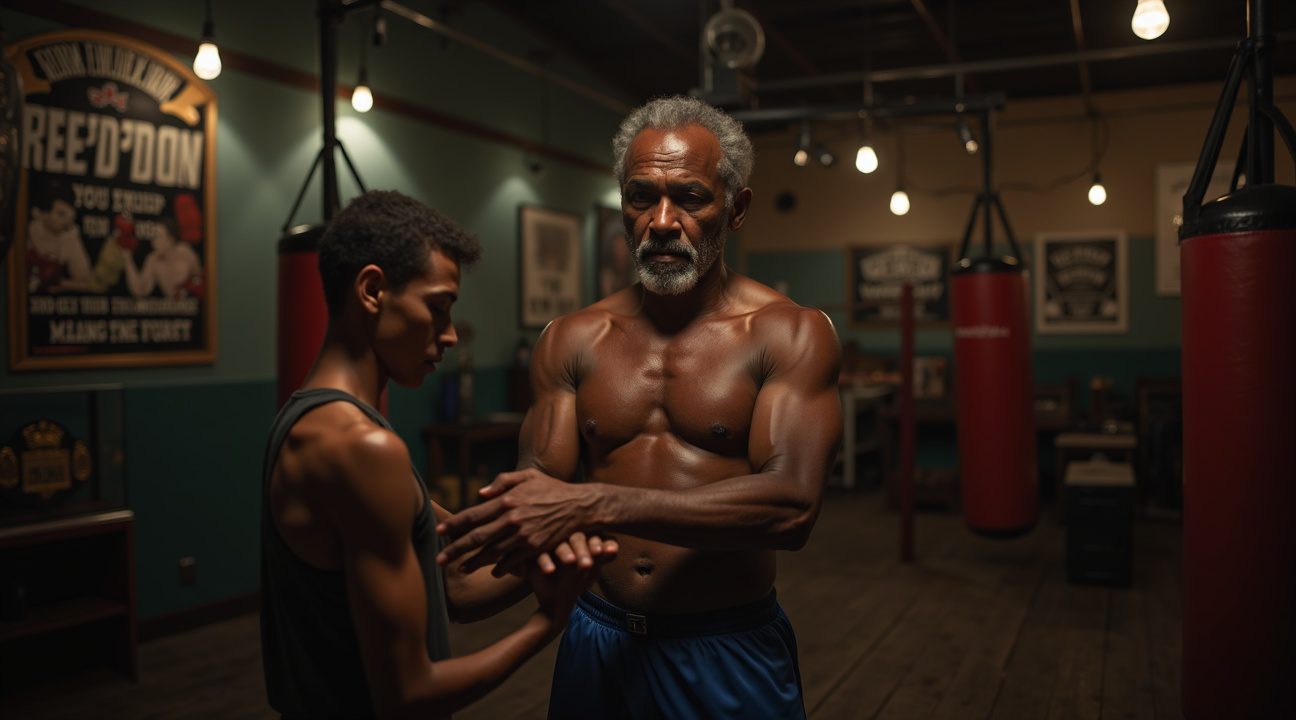
Sources:
The Ring: ‘Turned his life around’ – Ex-world champ Qawi dies at 72 by Keith Idec
Wikipedia: Dwight Muhammad Qawi
BoxRec Forum: Dwight Muhammad Qawi – How do you rate him?

